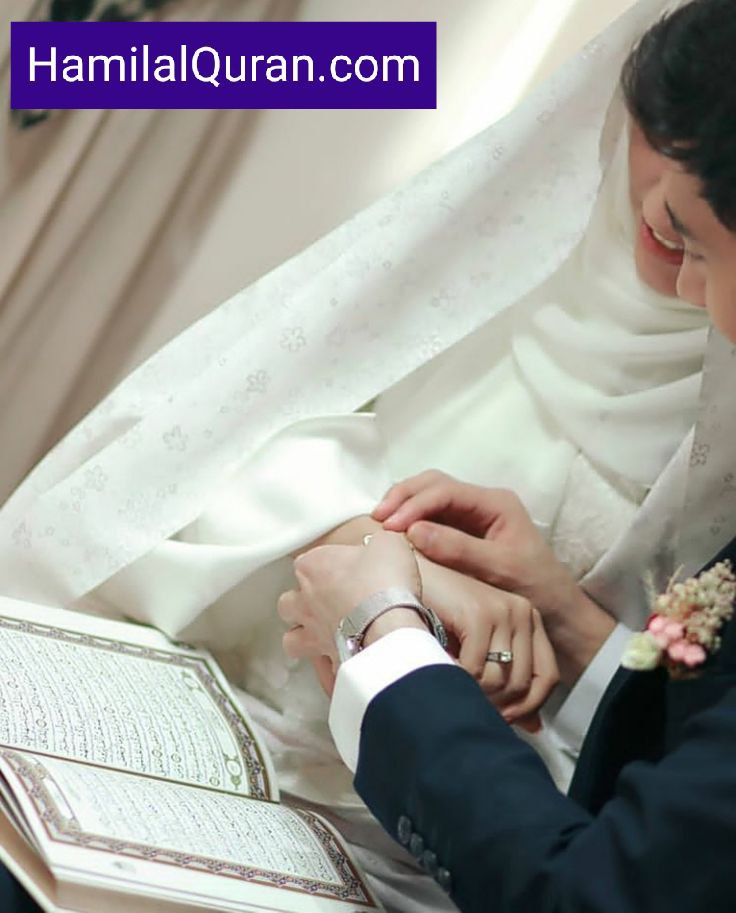Women have important roles and responsibilities in society in Islam, just as men do. Islam shows us that there are some differences in the roles and responsibilities of men and women, Islam also emphasizes the importance of treating both genders with respect and dignity and recognizes the unique contributions that women can make to society.
Hamil Al Quran Academy is honored to present the important roles women do to reach prosperity and happiness according to the Islamic point of view.
Women’s Responsibilities in Islam
Table of Contents
ToggleNurturing and raising children: In Islam, women are seen as the primary caretakers of children and are responsible for nurturing and raising them. The Prophet Muhammad (PBUH) said:
“Paradise lies at the feet of the mother”
Sunan al-Nasa’i
The Mother is the first source of mercy, care, love, and guidance to provide for their children.
The role of a mother is highly respected and valued in Islam. In fact, the Holy Quran mentions the mother’s name immediately after Allah (SWT) as a symbol of the high position that mothers hold in Islamic teachings.
"And your Lord has decreed that you not worship except Him, and to parents, good treatment."
Women are responsible for managing the household and ensuring that it runs smoothly. This includes tasks such as cooking, cleaning, and caring for family members.

Women’s responsibilities to seek knowledge in Islam
It’s important for Both men and women to seek knowledge and education. The Prophet Muhammad (PBUH) said,
“Acquiring knowledge is a duty of every Muslim, male and female”
Hadith Sharief
Muslim women are encouraged in Islam to achieve their academic and professional goals. Islam recognizes the important contributions that women can make to society through their work and other activities. Muslim women are encouraged to participate in their communities, to volunteer, and to pursue their career aspirations.
Women’s responsibilities to worship Allah SWT
Muslim women have the same obligations as men to pray, fast, give charity, and perform other religious duties. Women’s responsibilities are to deepen their Worship and spirituality and to seek a closer relationship with Allah the Mighty God.

Women’s responsibilities towards their husbands in Islam
It’s clear in Islam that both husbands and wives have responsibilities towards each other in marriage. While the specific responsibilities may vary based on cultural and individual circumstances, there are general guidelines outlined in Islamic teachings that are mentioned in the Book of Allah.
Some of the responsibilities that Muslim women have towards their husbands are:
1. Obedience: Muslim women are commanded to obey their husbands, provided that their husbands do not ask them to do anything that is against Islamic teachings. The Holy Quran states:
"Men are in charge of women by [right of] what Allah has given one over the other and what they spend [for maintenance] from their wealth. So righteous women are devoutly obedient, guarding in [the husband's] absence what Allah would have them guard." (4:34)
2. Companionship: Muslim women are encouraged to provide companionship and emotional support to their husbands. The Prophet Muhammad (PBUH) said,
“The best of you is he who is best to his family, and I am the best among you to my family. When one of you dies speak no ill of him.”
Tirmidhi
3. Sexual intimacy: Muslim women are expected to be available for sexual intimacy with their husbands, provided that it is consensual and within the bounds of Islamic teachings. The Holy Quran states,
"Your wives are a place of sowing of seed for you, so come to your place of cultivation however you wish and put forth [righteousness] for yourselves." Surah Al-Baqarah
4. Household management: women in Islam are responsible for managing the household and ensuring that it runs smoothly. This includes tasks such as cooking, cleaning, and caring for family members.
Women’s responsibilities are considered important for building a strong and harmonious family unit and are recognized as valuable contributions to the well-being of the marriage and the family.

Women’s responsibilities towards Charity and community service
Islam encourages both men and women to engage in charitable activities and community service. Muslim women can contribute to society through volunteer work, donations, and other forms of charitable activities. Charity is an important part of Islamic teachings, Charity is a significant component of Islamic beliefs. There are many different types of charities. Women in Islam are responsible for contributing to society in a positive way. This includes engaging in charitable activities, volunteering, and working towards the betterment of their communities.
Women’s Roles in Employment
Islam religion recognizes women’s right to work and contribute to society. Muslim women can work outside the home and pursue their career aspirations, provided that it is within the bounds of Islamic teachings and if the work doesn’t harm their major responsibilities towards their House and children. Islam emphasizes the need for both men and women to dress modestly and to observe the hijab, or head covering for women. This is seen as a way to protect the dignity of women and to promote a respectful and dignified society not preventing her from liberty, indeed covering her body is liberty.

Conclusion:
Muslim women have significant roles and obligations in society, including motherhood, leadership, charity work, and employment and these roles and responsibilities are seen as integral to the well-being of families and communities, and are recognized as valuable contributions to society. Women are respected and honored: Islam emphasizes the need to respect and honor women. The Prophet Muhammad (PBUH) was the best of us to his wives. Therefore, Muslim men are encouraged to treat their wives with love, care, and respect for their roles in House and Community. Islam encourages both men and women to seek knowledge and education. Muslim women are encouraged to pursue their academic and professional goals and to contribute to society through their knowledge and expertise. women are highly valued and respected in Islam and Allah (SWT) named a Surah (Chapter) in the Holy Quran with “Women” “Nisaa'”. They are equal in the sight of Allah, have rights and responsibilities, and play important roles in society. Islam ensures the need to treat women with respect and honor, and to promote a society that values the dignity and worth of all people. to learn more about Islam get your free trial in our Islam for Beginners course now!
